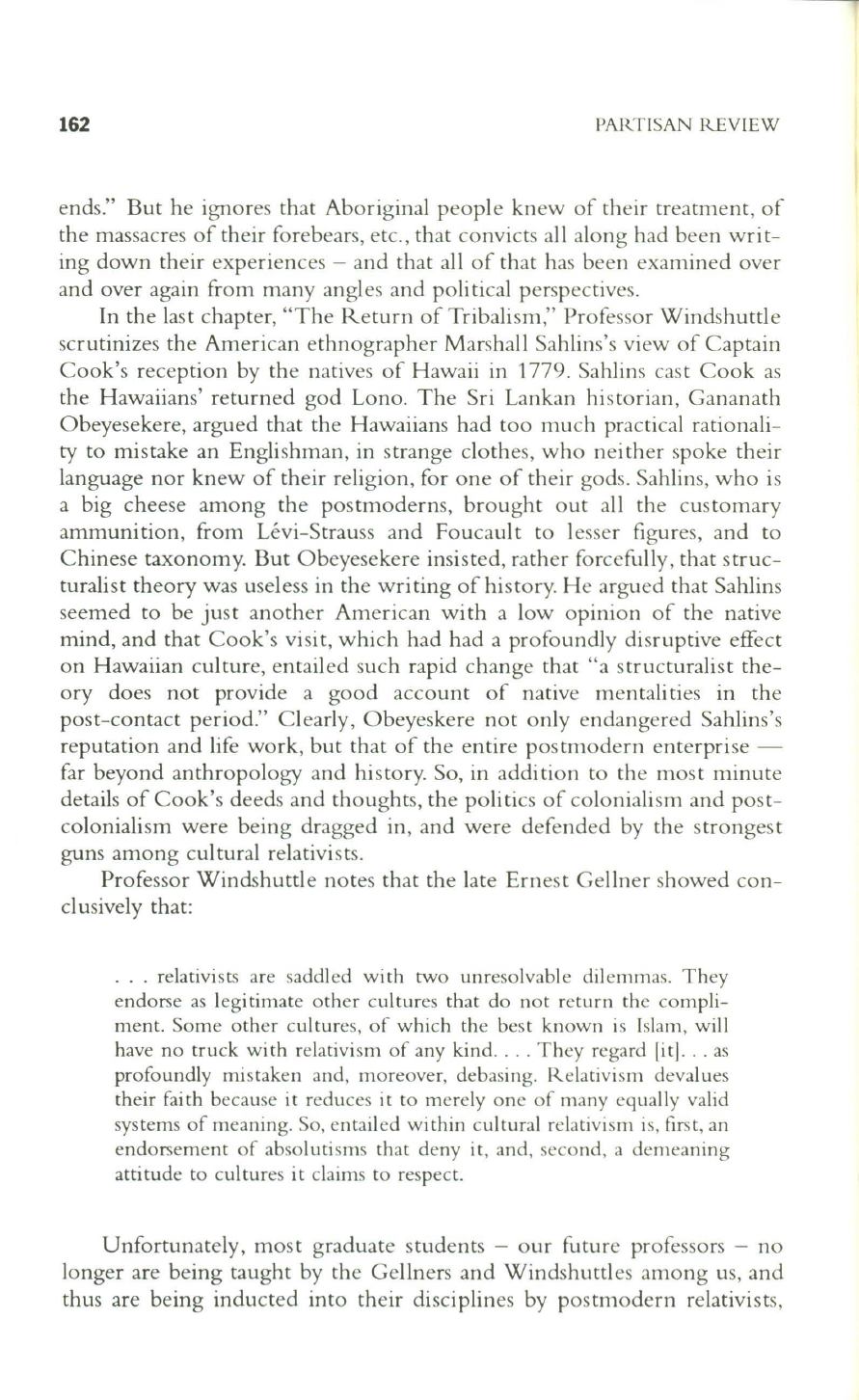
162
PARTISAN REVIEW
ends." But he ignores that Aboriginal people knew of their treatment, of
the massacres of their forebears, etc., that convicts all along had been writ–
ing down their experiences - and that all of that has been examined over
and over again from many angles and political perspectives.
In the last chapter, "The Return of Tribalism," Professor Windshuttle
scrutinizes the American ethnographer Marshall Sahlins's view of Captain
Cook's reception by the natives of Hawaii in 1779. Sahlins cast Cook as
the Hawaiians' returned god Lono. The Sri Lankan historian, Gananath
Obeyesekere, argued that the Hawaiians had too much practical rationali–
ty to mistake an Englishman, in strange clothes, who neither spoke their
language nor knew of their religion, for one of their gods. Sahlins, who is
a big cheese among the postmoderns, brought out all the customary
ammunition, from Levi-Strauss and Foucault to lesser figures, and to
Chinese taxonomy. But Obeyesekere insisted, rather forcefully, that struc–
turalist theory was useless in the writing of history. He argued that Sahlins
seemed to be just another American with a low opinion of the native
mind, and that Cook's visit, which had had a profoundly disruptive effect
on Hawaiian culture, entailed such rapid change that "a structuralist the–
ory does not provide a good account of native mentalities in the
post-contact period." Clearly, Obeyeskere not only endangered Sahlins's
reputation and life work, but that of the entire postmodern enterprise -
far beyond anthropology and history. So, in addition to the most minute
details of Cook's deeds and thoughts, the politics of colonialism and post–
colonialism were being dragged in, and were defended by the strongest
guns among cultural relativists.
Professor Windshuttle notes that the late Ernest Gellner showed con–
cl usively that:
... relativists are saddled with two unresolvable dilemmas. They
endorse as legitimate other cultures that do not return the compli–
ment. Some other cultures, of which the best known is Islam, will
have no truck with relativism of any kind.. . . They regard litl ... as
profoundly mistaken and, moreover, debasing. Relativism devalues
their faith because it reduces it to merely one of many equally valid
systems of meaning. So, entailed within cultural relativism is, first, an
endorsement of absolutisms that deny it, and, second, a demeaning
atti tude to cuI tures it claims to respect.
Unfortunately, most graduate students - our future professors - no
longer are being taught by the Gellners and Windshuttles among us, and
thus are being inducted into their disciplines by postmodern relativists,


